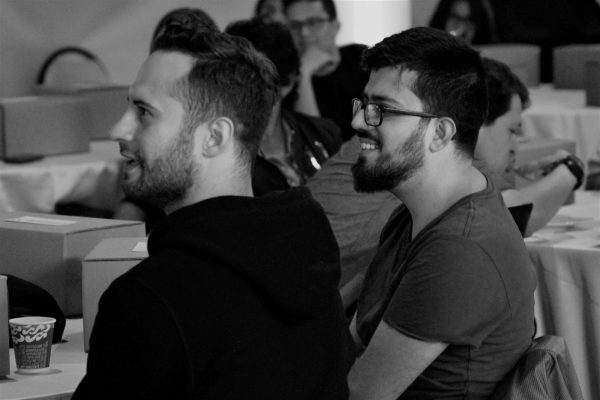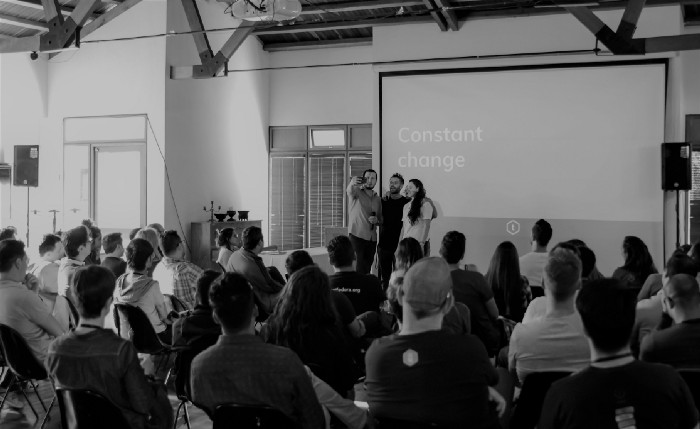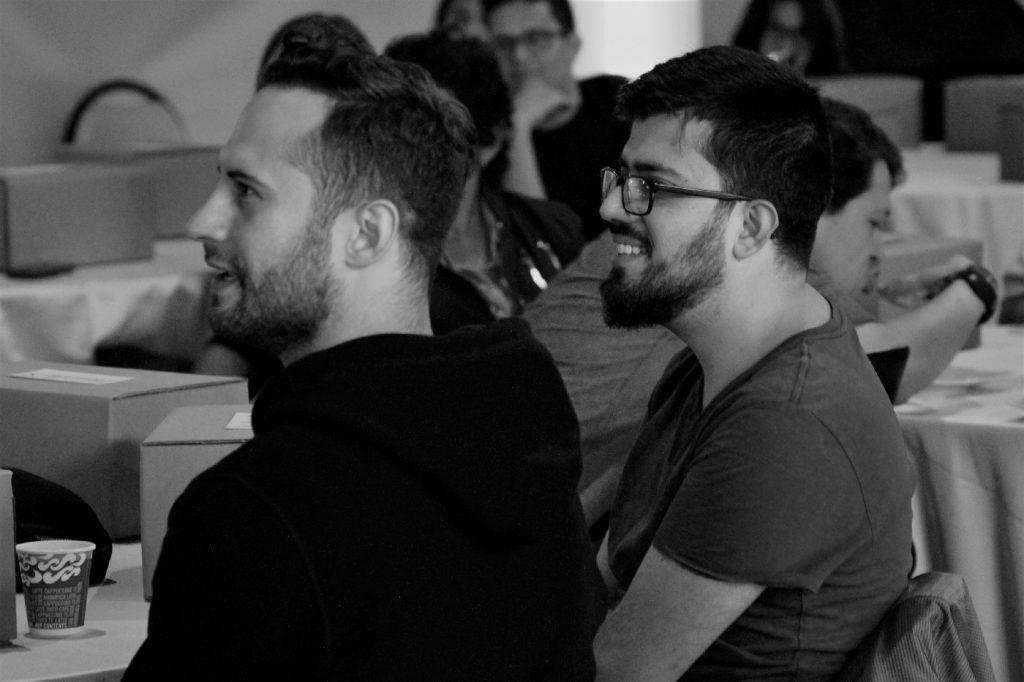Over the past few weeks, you’ve gotten to know some of us a bit better. Nadeem in Cairo, Shey in Montevideo, Camilo… mostly in Bogotá but also in other places. We recently got to know each other better too.
Once a year, we all got together for our yearly company retreat. All of us, from all over the world, met in Colombia, hung out in person, learned, and brainstormed Bunny Studio’s future. There were leadership and design thinking workshops, informative talks, team-building exercises, and time for fun — like when we went on a treasure hunt in the town of Villa de Leyva.
We learned and achieved a lot, but we couldn’t have done it without some help.
At Bunny Studio, we know that we don’t always have the answers. We also know that learning directly from experts is one of the best ways to grow educationally and professionally.
Our company leaders rely on our company advisors as mentors and industry experts throughout the year. With all of us in the same physical location, the retreat was a perfect time for everyone at the company to meet and to learn from the advisors.
So, since you’ve gotten to know some of our team members, let’s get to know our company advisors too. What are their backgrounds? What expertise do they bring to the table? What can you and I learn from them?
Read on to find out.
But if you prefer to watch a video instead, click here:
Meet Andres Barreto.

Andres, one of our company advisors, is a Colombian entrepreneur and venture capitalist. He is the co-founder of Firstrock Capital and the educational non-profit Coderise. He participates in the venture capital, startup, and nonprofit worlds. Why?
For Andres, each sector takes a different approach to solve different problems — entrepreneurs often look to solve a consumer need, for example. When combined, all the sectors can work together towards solving a bigger issue.
For example, in developing nations, being a bright kid with potential often isn’t enough to climb the socio-economic ladder. For most kids born into low-income families, life is riddled with roadblocks to success. Coderise teaches low-income, high school age kids in Latin America how to code. These kids can then go on to become developers, perhaps still based in Latin America, but working for a US-based or global startup. Some venture capitalist firms, like Firstrock Capital, are more likely to invest if the startup is open to having their engineering team in Latin America. This brings investment into the region, and with it more tech knowledge that can then be passed on. And so the cycle continues.
Venture capital on the whole, Andres says, is driven by networks, not data. These can be closed-off to all but a select few with the right connections and socio-economic status. Startups, on the other hand, are on the whole more accepting of different backgrounds. Can someone do the job and do it well? Cool, that’s all that matters. Hiring should be based on merit and data, not on social elitism.
By investing in the region and hiring based on merit, the socio-economic ladder gets easier to climb, slowly but sustainably. In that way, as Andres says, “local talent can access global markets and capital”. It works out for the startups who hire remotely in the region as well, as they are able to access a much bigger pool of top talents outside of the confines of Silicon Valley.
In this cycle, each approach plays its part for a greater, long-term benefit for all involved. Win-win.
“Measure the things that matter”.
Andres has influenced the way we hire at Bunny Studio We are a remote company and hire globally, wherever the best talent is, based on merit and experience. That’s how to build a stable and secure team.
Once you’ve built that team though, what happens then? How can a company grow?
That’s a complex question with many possible answers, but here’s a tip. “Measure the things that matter”, says Andres. What does this mean? Well, not all data is equally valid — make sure you are measuring and analyzing what will really impact your business. For startups and entrepreneurs, that means paying attention to customer retention. Andres gave the first talk of the retreat, and he spoke on this topic. Customers that stay around for the long term are much more valuable than customers that buy your product once and never come back. In the end, loyal customers sustain your business. Pay attention to what matters, and you’ll learn quickly.
At Bunny Studio, our goal is to grow 100% year-on-year for the next four years. Customer retention, as well as continuing to build our global team, are part of how we plan to achieve that ambitious goal.

Round-up.
For all the team members at Bunny Studio, meeting the company advisors was a chance to learn from their expertise. From Andres, we learned the value of multiple approaches working together to solve a bigger issue. We also learned that not all data is equally valid — make sure to measure and analyze what matters the most. That’s advice that can be applied anywhere, not just in the business world.
Meeting our company advisors during the retreat was a chance for all of us to meet the people who started it all, as it were. They have helped shape the company from the very beginning. So, getting to know our advisors means getting to know Bunny Studio better, too. We work together as a team to make our customers happier. And we do it by following the advice of Andres and a few other people.
Want to meet the other advisors? Want to learn more about why we work the way we do? Stay tuned for the next installment.
Please note this blog is a copy of the original published in Medium by Emmy Tither.










